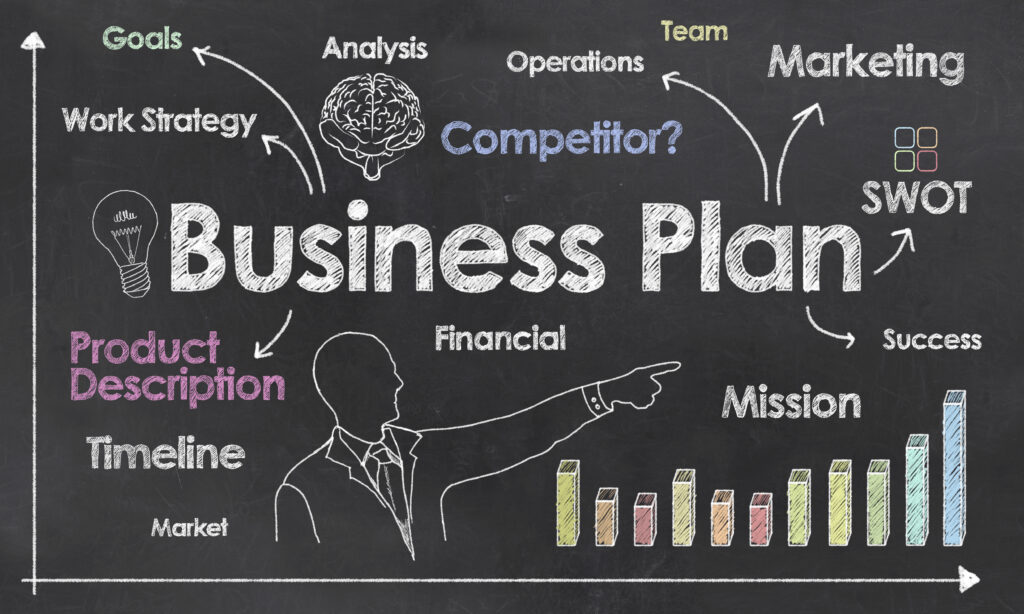
Loan financing plays a vital role in the growth of your small business. Small business loans provide capital for equipment and inventory purchase, debt consolidation, and expansion. However, before lenders grant you the loan, they must ensure that you have the money to repay it. Of course, since loans are functionally risky, brokers and banks aim to minimize jeopardizing their profits by securing that the small business will promptly pay back their loans.
Lenders grant money to devoted businesses that demonstrate their determination to repay their loans. Still, having a dream and a lot of passion for your company’s idea simply won’t cut it. For your loan application to be approved, you’ll need to display characteristics that make you look secure and attractive to your lender.
If you’re a small business owner ready to take your business to the bank, consult this list of ten things lenders look for before granting a small business loan.
Credit History
When applying for any loan, the credit score is the barrier of all barriers. A high one can make you stand out as a surefire investment, and a low one can mark your application with a red flag that’s not easy to overcome. Suppose you’re a part of a firm or partnership in which owners bear full or partial fiscal responsibility for the company. In that case, your lender will check both your personal and business credit scores by evaluating your credit history.
A low FICO score or limited credit history can bar business owners from qualifying for a traditional business loan. Unfortunately, those with low credit scores who are eligible will likely fall victim to much higher interest rates imposed by the lender. Business owners with minimal credit history but otherwise legitimate means to pay back a loan ought to consider looking for other alternative financing options like these.
Purpose of the Loan

After finding out how much your business requests, lenders will likely ask, “why?” Lenders are interested in the motivation behind the loan request and require detailed explanations surrounding your potential use of funds. Banks will commonly approve loans that business owners claim they will use to purchase inventory, improve cash flow, make payroll payments, or fund expansion projects.
Failing to provide a satisfactory explanation surrounding your plan for the use of the loan will likely result in the rejection of your application. For example, most lenders will not lend you a small business loan to decrease your existing debts. If you’re concerned that your lender may criticize your projected loan usage, you can consider applying for a small business loan from an online lender with less stringent usage restrictions.
Business Experience
Banks and other lenders will want to know more about your experience in your business’s industry. Your company has a higher chance of qualifying for a loan if it has been operating for several years and has well-managed finances.
The opposite is also true. Your small business may fail to secure a loan if it has been operating for a short period or has struggled financially and cannot demonstrate a positive revenue trajectory.
Lenders need a guarantee that you will be able to make your monthly payments in full and on-time after granting you a loan. You’ll need to show them that your business is stable and has a strong performance track record.
Business Plan

Most lenders ask for a business plan when you apply for a loan. The business plan is crucial to the approval process as it helps banks and other lenders ascertain the ideal loan amount and the appropriate payment period.
A good business plan should adequately reflect your business goals, finances, and any other relevant details about your business. If the document fails to show this information, you might not get approved.
Drafting a business plan for your small business shouldn’t be difficult. Start by making projections to see where your business will be in the next three to four years. Afterward, curate the business plan. Traditional business plans incorporate executive summaries, company descriptions, market analysis, product lines, management, sales, and financial projections.
Personal Information
Even if the loan is designated for your company, some personal information can hinder you from qualifying for a small business loan. Your lender may request personal information, including your addresses, criminal record, tax returns, education level, assets, financial statements, and individual loan balances. If the lender deems you to be an individual of questionable character, they can reject your application.
Financial Statements
Besides your financial details, you must provide your business financial documents to demonstrate whether you qualify for a loan. These statements include your balance sheet, cash flow statement, accounts receivables, income statements, profit and loss statements, business bank account balance, and other financial projections.
Cash Flow

Lenders tend to be highly concerned with your business cash flow. Is your business generating money to repay the small business loan? If not, your loan will not be approved. The bank will ask you to provide details about the primary source of cash for your business to determine your cash flow.
Collateral
Collateral is personal or business property that guarantees your loan repayment. These assets may include inventory, vehicles, real estate, equipment, etc.
Even if your credit history leaves something to be desired, you can qualify for a small business loan by proving that you have enough collateral. The bank or lender will evaluate the value of your property and then match it with the loan value you want to obtain. To know more about collateral and how they work, click here.
A Guarantee
It isn’t uncommon for lenders to request a personal guarantee when owners apply for a small business loan. A personal guarantee is a written document in which the company owner promises that they will repay the traditional loan with personal assets if the business fails to clear the loan balance. In some instances, the bank will request that you name the specific investments you intend to use to repay them.
Information on Your Outstanding Loans and Debts

Ensure you pay off all your outstanding debts and loans like your credit card balance before applying for a small business loan. If you apply for another loan and still have an existing one, this can harm your credit score.
Outstanding debts coupled with overheads like payroll, inventory orders, and rent payments may work against your business during loan application.
Wrap Up
The application process can be rife with stress, excitement, and uncertainty for many business loan hopefuls. Still, with proper planning and the right tips on your side, your business can successfully qualify for a loan and begin to flourish.








